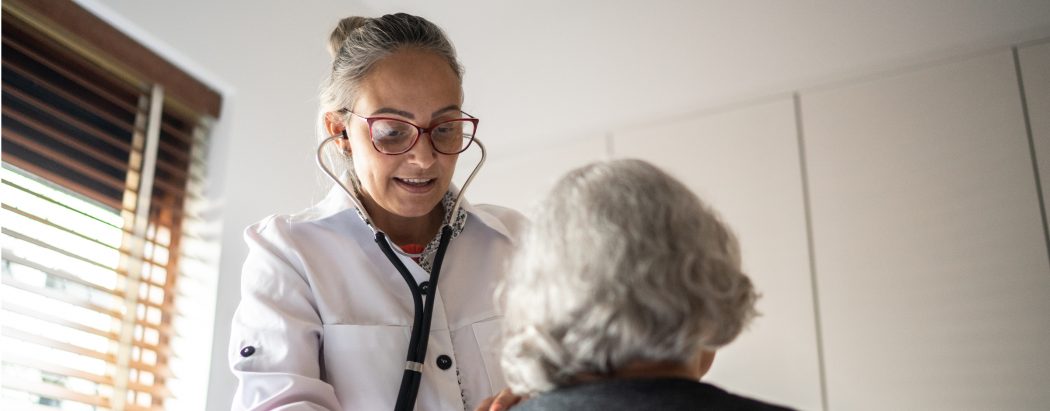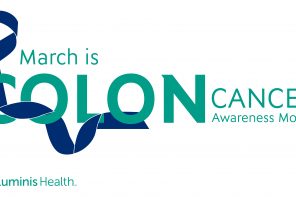Every day, you take steps to protect your health. You may buckle up when you get in the car or put sunscreen on when you plan to be outdoors. Or maybe you take the stairs instead of the elevator at work and make it a point to eat plenty of fruits and veggies. These are simple things, but they can reap big rewards when it comes to keeping you well. And if you’re a current or former smoker, there’s another easy way to stay healthy and safe: Talk with your doctor about lung cancer screening.
Lung cancer screening may be one of our most powerful weapons yet in the fight against lung cancer. And with updated recommendations from the U.S. Preventive Services Task Force (USPSTF), more people than ever now qualify for this potentially lifesaving care. You might be one of them.
Discover how early detection can make a difference
Lung cancer is the most common cause of cancer deaths. It’s also the second most common type of cancer diagnosed in men and women in the U.S. One big reason: Most people don’t notice symptoms of the disease until it’s in an advanced stage, when it’s often difficult to treat.
Screening may help doctors find cancer early, before symptoms appear. When lung cancer is small and hasn’t spread, treatment may keep you from dying of the disease. That’s a good reason to go looking for trouble, even if you feel fine.
Know if you should get screened
We know smoking poses, by far, the most significant risk factor for lung cancer. With this in mind, the USPSTF now recommends annual lung cancer screening if you:
- Are between 50 and 80 years old. Previous guidelines suggested starting screening at age 55.
- Have a 20 pack-year smoking history. To calculate your pack-years, multiply the number of packs you smoked each year by the number of years you smoked. For example, a 20 pack-year means you smoked half a pack a day for 40 years or two packs a day for 10 years.
- Smoke now or stopped smoking in the past 15 years. Kicking your tobacco habit is the best thing you can do to prevent lung cancer — and a host of other health problems as well. And even if you quit several years ago, you’re still at increased risk.
The USPSTF says you can stop screening if you:
- Have a health problem likely to limit your life expectancy or make it hard for you to have lung surgery that could cure your cancer
- Haven’t smoked in more than 15 years
Know what to expect during your screening test
Lung cancer screening involves a low-dose computed tomography (LDCT) scan. During the test, you will lie in a machine that takes X-ray images of your lungs. These detailed images allow your doctors to identify spots that might be cancer. LDCT tests take just a few minutes and are not painful. Medicare and most insurance plans help pay for these screening tests.
Speak with your health care provider
The best way to find out if and when you should get screened for lung cancer is to speak with your health care provider. Your doctor will talk with you about your risk factors and explain the benefits and possible drawbacks. If the test is right for you, your health care team will help you get it scheduled.
However, screening isn’t a good substitute for giving up tobacco. Quitting smoking is the single best step you can take to prevent lung cancer and improve your overall health. It isn’t easy, but it is doable. Millions of Americans have successfully stopped smoking, and you can be one of them.
Learn more about our quit smoking resources.

Imad Tabbara, MD, FACP, has more than three decades of clinical experience with cancer patients, and holds board certifications in internal medicine, hematology and medical oncology. He leads the LHAAMC Hematology and Medical Oncology program. Learn more at LuminisHealth.org/cancercare.




